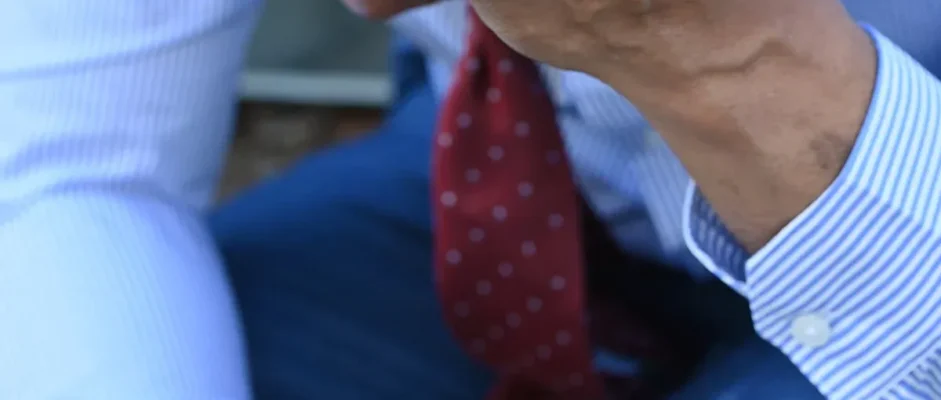You might ask why The Narcissist Worries After Discarding You. Narcissists always want praise and to be in charge. When you go away, they lose their emotional supply. This makes them feel nervous, unsure, and scared.
You may see them trying to get your attention again. They might try to control you once more. Your feelings are important, and knowing these reasons can help you get better.
Key Takeaways
Narcissists get scared when you leave them. They need your attention and praise to feel happy.
After a breakup, they might contact you again. They want to control you and get more praise. They do not care about your feelings.
Narcissists change the story to look good. They might tell lies or act like they are the victim.
Watch for signs that they are worried. They may call you or act differently. These actions show they want attention.
You should set strong boundaries. Block them or ignore their messages to stay calm.
Knowing why they act this way helps you heal. Learning about them makes you stronger and helps you move on.
Take care of yourself and be with kind people. You should be treated with respect and kindness.
Healing takes time, but you are not alone. Ask friends for help and take care of your feelings.
Why The Narcissist Worries After Discarding You
If you wonder why The Narcissist Worries After Discarding You, there are three big reasons. They worry about losing supply, losing control, and being left alone. These worries can show in different ways. You might see them act differently, try to talk to you, or change how they look. Let’s look at these reasons so you know what is going on.
Fear of Losing Supply
Narcissists always want emotional supply. This supply helps them feel good about themselves. When you leave, they lose this supply. This makes them feel nervous and jumpy.
Validation
You give them validation. Your praise and attention make them feel special. Without you, they feel empty inside. They may try to get your attention again. Sometimes, they send messages or post online to see if you notice.
Attention
Attention is like energy for narcissists. If you stop giving it, they look for it somewhere else. You might see them hang out with new friends or work buddies. They may change their routine, hide their phone or social media, or wear new clothes or get a haircut. These things help them find new attention.
Hanging out with new people
Hiding what they do
Changing how they look
Loss of Control
Control matters a lot to narcissists. When you move on, they lose control over you. This makes them feel weak.
Manipulation
Narcissists use tricks to keep you close. After they leave you, they might use “reverse discard.” They push you to end things, then act like you hurt them. This helps them control the story and avoid blame. You may feel mixed up, guilty, or tired because of these tricks.
Making you end the relationship
Changing the story to look innocent
Unpredictability
When you act in ways they don’t expect, narcissists worry. They do not know what you will do next. This makes them nervous. They may get angry or try new ways to get your attention. Sometimes, they act mean or try to bother you to get control back.
Narcissists often act controlling and mean. When they lose control, they may get angry or try to bother you.
Fear of Abandonment
Narcissists are scared of being left alone. This fear comes from times they felt rejected or ashamed before. It makes them act a certain way after a breakup.
Emotional Needs
Narcissists have strong emotional needs. They want comfort and attention. When you leave, they feel alone. Some may watch what you do, call you, or try to get back together. These actions help them feel less lonely and keep you as a backup.
Some narcissists keep reaching out after a breakup. They want to make sure you are still there if they need you.
Seeking New Partners
Narcissists often look for new partners before the relationship ends. They want someone ready to replace you. This shows they do not feel close to you. Their need for praise makes them start new relationships fast.
Planning for new relationships
Quickly starting with new partners
Common Misconceptions
Many people think narcissists do not care after a breakup. This is not true. They worry about losing supply, control, and their image. Overt and covert narcissists both worry, but show it in different ways. Overt narcissists may act out or want attention in public. Covert narcissists may watch you quietly or ask for comfort in private.
Covert narcissists are very scared of being left alone. They may watch what you do or reach out for comfort.
You might see them act differently, try to trick you, or look for new relationships. These actions do not mean they love you or feel sorry. They do these things to protect themselves.
Exposure

When you leave a narcissist, you might worry about what secrets they could share or how they might twist your story. Narcissists often fear exposure. They want to keep their secrets hidden and control how others see them. This fear can make them act in surprising ways.
Secrets
Narcissists often keep secrets to protect their image. They may hide things they did wrong or stories that show their true self. When you know these secrets, you hold power they do not like. You might notice them acting nervous or defensive if they think you will share the truth.
Reputation
Your knowledge of their secrets can threaten their reputation. Narcissists care a lot about how others see them. They want to look perfect or special. If you reveal their secrets, they fear losing respect or admiration from friends, family, or coworkers.
Narcissists often react strongly when they feel their reputation is at risk. You might see them try to charm others or spread stories to protect themselves.
Their reaction can depend on the setting. Here is a table that shows how their worries about exposure change in public and private relationships:
Setting | Reaction Type | |
|---|---|---|
Public | Sadness | High |
Private | Sadness | Low |
Public | Hostility | High |
Private | Hostility | Low |
In public, narcissists may show more sadness or anger if they think you will expose them. In private, their reaction is usually less intense.
Narrative
Narcissists want to control the story others hear. They often use tricks to change the narrative and protect themselves. You may notice these behaviors:
Deflection: They shift blame onto you or others.
Projection: They accuse you of the things they did.
Rationalization: They make excuses for their actions.
Victim-playing: They act like you hurt them, not the other way around.
Triangulation: They involve others to turn them against you.
You might hear them say you started the fights or caused the problems. Even when you show proof, they may keep changing the story. This helps them keep control and avoid blame.
If you feel confused or doubt your own memories, you are not alone. Narcissists often rewrite reality to protect themselves.
Narcissists worry that you will share the truth. They may try to silence you or convince others not to believe you. Their fear of exposure drives many of their actions after the relationship ends.
Image
Narcissists care a lot about how people see them. Their image is very important in groups, both online and in real life. After a breakup, they try hard to protect their reputation. They want others to think they are perfect, admired, and in control.
Social Circles
Your group of friends becomes a stage for the narcissist. They want friends, family, and coworkers to think they are special. You might see them act nice or give gifts in public. They often try to win people over with praise or presents. If someone questions them, they may start fights or push that person away.
Narcissists need constant validation and admiration from partners and friends. This can make them act in manipulative ways like lovebombing and gaslighting. They have trouble accepting flaws in themselves and others. This can make relationships toxic. Their need to control their image can cause sudden fights and make them leave partners who do not fit their perfect picture.
Narcissists want to control the story about the breakup. They may tell others you hurt them or say you were the problem. This helps them keep their image clean and avoid blame.
Online Presence
Social media helps narcissists shape their image. You may see them post happy pictures, share achievements, or write good updates. They want everyone to think they are doing great. Sometimes, they watch what you do online to see your reaction.
Narcissists often watch their ex-partners to feel better and get validation after a breakup.
Their actions come from their need for narcissistic supply, which is the attention and praise they want.
Being rejected by an ex hurts their self-image, so they keep checking to feel good again.
Some narcissists enjoy seeing their ex-partners upset after a breakup, which makes them feel powerful.
They may try to talk to their exes again, called ‘hoovering’, to control them once more.
Social media makes narcissistic traits worse because it encourages people to focus on themselves and compare with others.
You might see them copy trends or post about their success. They want to look better than other people. This helps them feel important and admired.
Defensive Actions
Narcissists use defensive moves to protect their image. You may see them block you online or stop talking to you. This helps them avoid blame and control the story.
Blocking: Narcissists block you to avoid blame and protect their ego.
Controlling the narrative: They block you so they can tell their side of the breakup and look like the victim.
Emotional withdrawal: They pull away to hide weakness and keep their self-image strong.
Culture also matters. Society likes success and beauty, so narcissists try to match these ideals. Social media makes people feel watched, which makes narcissists work harder to protect their image.
Culture makes narcissists want to look good on the outside.
Narcissists pay attention to what society says about success and beauty, so they copy these ideas.
Social media and technology make people feel like they have an audience, so narcissists feel more pressure to look perfect.
You may feel confused or hurt by what they do. Remember, narcissists worry most about how people see them. Their defensive actions are not about you—they just want to keep their image safe.
Signs of Worry

When you look for signs that a narcissist worries after a breakup, you can spot certain patterns. These behaviors show their need for control, attention, and validation. You may notice them reaching out, spreading rumors, or using tricks to get you back.
Contact Attempts
Narcissists often try to contact you after a breakup. You might get texts, calls, or social media messages. Sometimes, they reach out when their need for validation drops. This cycle includes stages like idealization, devaluation, discard, and hoovering. The timing of their contact changes based on what they want or how they feel.
They send friendly messages to test your reaction.
You may get sudden calls late at night.
They might comment on your social media posts.
Sometimes, they ask mutual friends about you.
You may feel confused when they reach out. Their contact is not about caring for you. They want to see if you still give them attention.
Smear Campaigns
After a breakup, narcissists may start smear campaigns. They spread rumors or lies to damage your reputation. You might hear stories that make you look bad. Their goal is to protect their own image and control how others see you.
They tell friends you were the problem.
You may hear false stories about your behavior.
Sometimes, they exaggerate small issues to make you look worse.
Smear campaigns can hurt your relationships with others. You may feel isolated or misunderstood. Remember, these actions come from their fear of losing control and supply.
Manipulation
Manipulation is a common sign of worry in narcissists. They use tricks to pull you back into their world. You may notice them trying to reconnect after the breakup. Their main goal is to regain control and make you feel less important. The first discard often shows you that they do not need you, which can lower your self-worth. They want you to chase their attention and approval.
You might see these manipulation tactics:
They act like the victim to get sympathy.
You may get mixed signals, like kind words followed by cold silence.
Sometimes, they promise to change or apologize, but their actions do not match their words.
If you feel like you must prove yourself or win back their attention, you are experiencing their manipulation. You deserve respect and honesty, not mind games.
Conclusion
Narcissists worry after discarding you because they fear losing their supply, control, and image. Their actions may confuse you, but knowing these signs helps you protect yourself.
You now know that narcissists worry after leaving you. They are scared of losing supply, control, and how people see them. When you understand why they act this way, you can notice their tricks and keep your self-worth safe.
Learning about their actions helps you heal and get stronger.
Knowing yourself and having help from friends makes it easier to feel better.
Making rules for yourself and caring for your needs helps you move on.
Transform your Inner Chaos into authentic personal growth!
Stay informed on the latest research advancements covering:
Co-Parenting With A Narcissist
Frequently Asked Questions
Why does a narcissist contact you after discarding you?
You may get messages or calls because the narcissist wants to see if you still care. They want to know if you will give them attention again.
How can you tell if a narcissist worries after a breakup?
You might notice sudden texts, social media posts, or rumors about you. These actions show they feel nervous about losing control or attention.
Do narcissists ever regret discarding someone?
Most narcissists do not feel true regret. They may miss the attention you gave them. They often come back only to get more supply.
What should you do if a narcissist tries to contact you?
You can set clear boundaries. Block their number or social media if needed. Protect your peace and focus on your own healing.
Why do narcissists start smear campaigns?
They want to protect their image. By spreading rumors, they try to make you look bad and keep others on their side.
How can you heal after a narcissist discards you?
Focus on self-care. Spend time with people who support you. Remember, you deserve respect and kindness.
Healing takes time. You are not alone.
